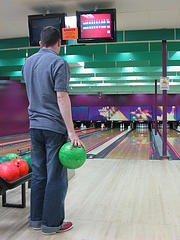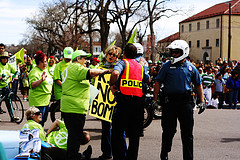 In a new editorial from the Freakonomics bloggers at the New York Times asks, “Do Hamburgers Cause Crime?” A new paper from Jennifer Dillard of the Georgetown Law School investigates the effects of lengthy employment on the ‘kill floor’ of slaughterhouses to a dramatic increase in the risk of psychological problems, like post traumatic stress disorder. Dillard argues that from a legal standpoint, these workers should be compensated under O.S.H.A.
In a new editorial from the Freakonomics bloggers at the New York Times asks, “Do Hamburgers Cause Crime?” A new paper from Jennifer Dillard of the Georgetown Law School investigates the effects of lengthy employment on the ‘kill floor’ of slaughterhouses to a dramatic increase in the risk of psychological problems, like post traumatic stress disorder. Dillard argues that from a legal standpoint, these workers should be compensated under O.S.H.A.
In their discussion of Dillard’s new work, the Freakonomics blog authors also highlight sociologist Amy Fitzgerald’s paper which concludes that communities with slaughterhouses experience a ‘spill-over’ effect from this type of work, resulting in much higher rates of violent crime than other communities with similar demographic characteristics.

 CBS news
CBS news Follow
Follow  Professor
Professor  A recent
A recent  A new study from
A new study from